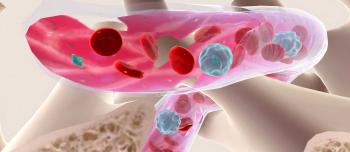Last month, the US Food and Drug Administration (FDA) rescinded the seven-year orphan drug exclusivity for Octapharma’s Wilate®, an injectable human plasma-derived von Willebrand factor (VWF)/factor VIII (FVIII) concentrate for the treatment of spontaneous and trauma-induced bleeding episodes in patients with all types of von Willebrand disease (VWD). Wilate is also indicated for the treatment of patients with mild or moderate VWD in whom the use of desmopressin (a synthetic version of the hormone vasopressin) is ineffective or contraindicated.
Wilate was initially granted orphan drug status by the FDA in December 2009.
The re-evaluation was initiated by a citizen petition filed by CSL Behring in March 2011, asking the FDA to do three things: revoke Wilate’s orphan drug designation, revoke its seven-year period of orphan drug exclusivity, and deny its “hypothetical claims of superiority” in terms of its safety profile. The FDA concluded that the available data don’t “support a conclusion that Wilate has been demonstrated ‘to provide a significant therapeutic advantage over and above that provided’ by Humate-P®.” CSL Behring’s Humate-P is a human plasma-derived FVIII/VWF product used in the treatment and prevention of bleeds in patients with hemophilia and VWD.
Retroactive to December 2009 when Wilate was approved, it will lose seven years of exclusivity, but retain its orphan drug status. Further, although the FDA determined that Wilate was “chemically the same type drug” for the same orphan designation as Humate-P, it determined that Octapharma had a legitimate claim for superior safety. Wilate involves two viral inactivation processes, whereas Humate-P involves one.
The FDA’s Office of Orphan Products Development grants orphan drug status to unique drugs or biologics to treat rare diseases, those affecting fewer than 200,000 people. Approved products go through an expedited review process, ensuring that therapies become available earlier to patients with rare life-threatening diseases who need effective treatments.
Source: drugs.com, August 10, 2012





